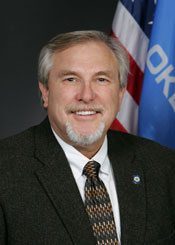BY DAVID PERRYMAN
 “Ten years ago, a crack commando unit was sent to prison by a military court for a crime they didn’t commit. These men promptly escaped from a maximum-security stockade to the Los Angeles underground. Today, still wanted by the government, they survive as soldiers of fortune. If you have a problem … if no one else can help … and if you can find them … maybe you can hire … The A-Team.”
“Ten years ago, a crack commando unit was sent to prison by a military court for a crime they didn’t commit. These men promptly escaped from a maximum-security stockade to the Los Angeles underground. Today, still wanted by the government, they survive as soldiers of fortune. If you have a problem … if no one else can help … and if you can find them … maybe you can hire … The A-Team.”
The 1980’s television show, The A-Team, featured a team of mercenaries, led by Col. John “Hannibal” Smith. Finding themselves in impossible situations facing improbable odds and little chance of survival, let alone success, the team used collective resilience, adaptability and resourcefulness to always land on their feet with mission accomplished.
“I love it when a plan comes together” was Hannibal’s ready response when everyone, including he himself, knew that his plans “never worked right, they just worked.”
Unfortunately, when it comes to the budget, Oklahoma has no plan whatsoever, and that is not hyperbole. According to the Center on Budget and Policy Priorities, Oklahoma ranks 50th in the country for budgeting for the future.
Year after year, Oklahoma produces a budget with no budget map to the future and a lack of budget tools.
Seriously, unless you or I had the full purchase price in the bank, the only way that we would purchase a car is if we knew that we could make car payments when they come due. We surely wouldn’t upgrade to a luxury model if we anticipated a drop in income. We would do everything that we could to know in advance whether, in future years, we could afford an automobile of adequate size and reliability, taking into consideration anticipated costs such as maintenance, insurance and efficiency or whether a new child on the horizon might dictate a need for additional seats.
We would not allow old habits or dogmatic theories to dictate what or how much of an item is purchased. We would look for independence and credibility in the experts that we rely upon to make economic decisions.
We would save money back when times are good so that when times are really bad, we have plenty of money to meet our needs. We would routinely scrutinize routine expenses and change our spending habits when we are not getting a good bargain.
But in Oklahoma, that is not what the government does. It doesn’t plan based on need and it limits its ability to save during good times.
Instead, economic policy in the Sooner State is based on just two considerations: First, state revenues are to be used to reward campaign donors. Second, taxes exist to be cut, dogmatically.
Until Oklahoma allows its Rainy Day Fund to grow during good times to a level that it can effectively help the state through down energy cycles of enduring length and honestly scrutinizes the tax breaks and credits that have been handed out as political patronage, we will continue the status quo.
The current Rainy Day Fund cap of 15% of the preceding fiscal year’s general revenue fund certification is inadequate.
I had hoped that the evaluation committee created by HB 2182, which I co-authored, would have already identified tax credits that needed repealed, but late appointments by the governor and the Senate keep the committee’s work from having any impact until mid-2017 at the earliest.
Next year the state will have only $4 to spend for every $5 it had this year. The shortfall is not because of planning. It is because Oklahoma failed to plan.
The decline in oil prices may be partly to blame with tax cuts for the oil and gas industry since the mid 2000s costing the state $350 million, but the real culprit is the incessant and dogmatic drive to cut the state’s income tax from 6.65% to 5% at a cost of over $1 billion per year, without considering needs.
The budget crisis is real and not a television script. George Peppard and Mr. T won’t just drop in and make things “work out.” When legislators don’t have a budget plan, people are hurt and Oklahoma suffers. – David Perryman, a Chickasha Democrat, represents District 56 in the Oklahoma House







